Phone:
(701)814-6992
Physical address:
6296 Donnelly Plaza
Ratkeville, Bahamas.
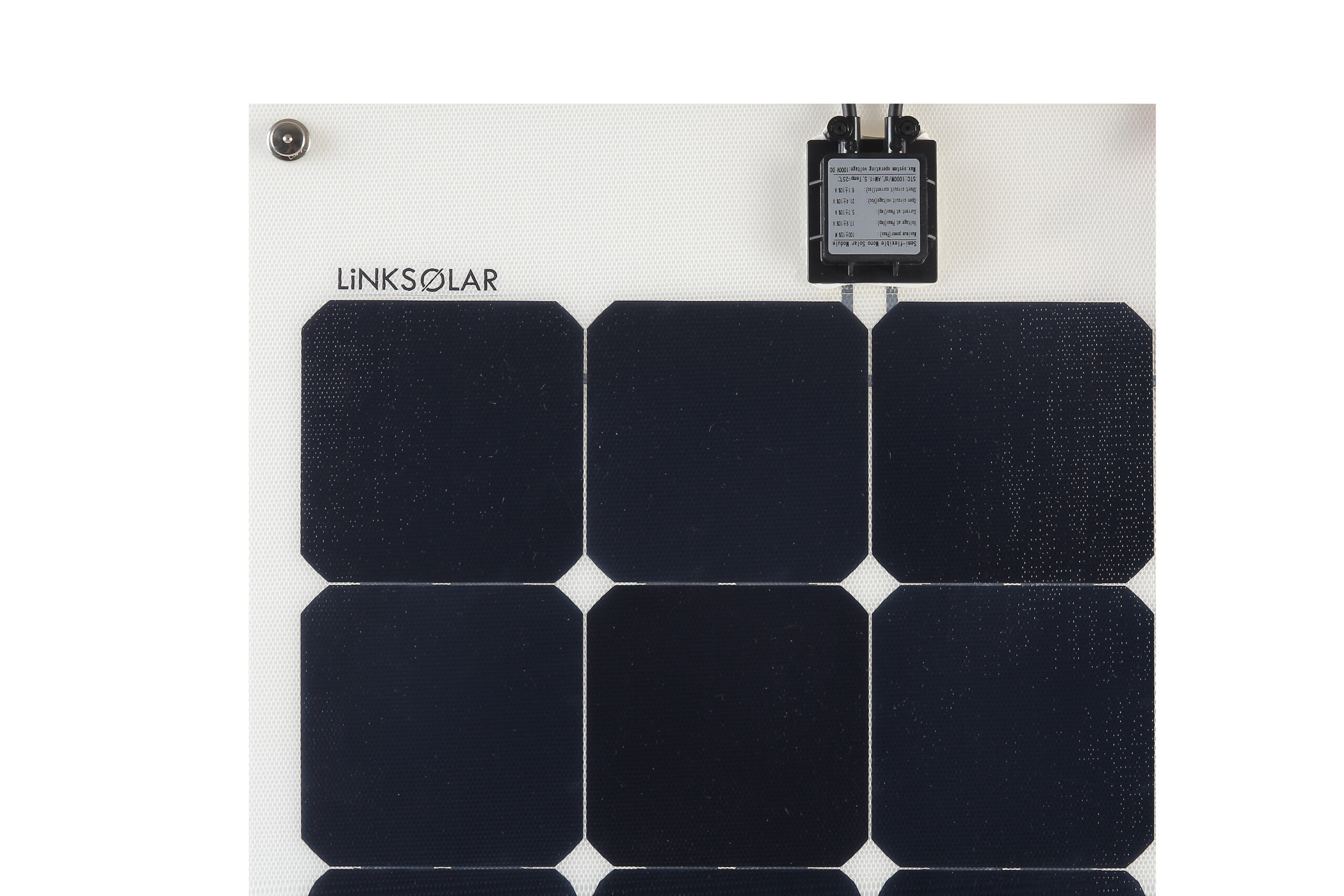
Wondering if flexible solar panels for RVs are worth it? These panels offer a lightweight and versatile solution for your power needs on the road. In this article, we will delve into their key benefits, the technology behind them, and how they compare to traditional solar panels. Read on to learn why so many RV enthusiasts are making the switch to flexible solar panels.
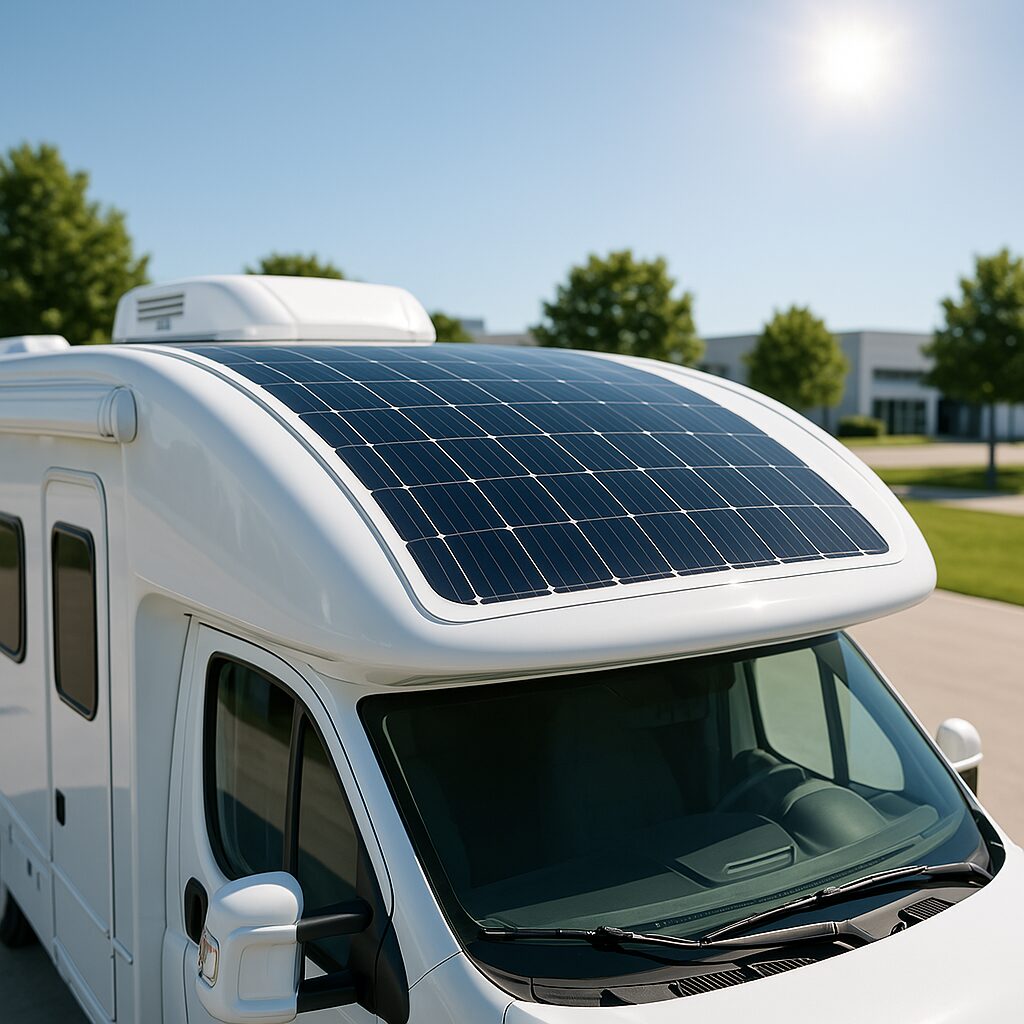
Flexible solar panels revolutionize RV power solutions. Their lightweight construction simplifies transport and installation, which is especially beneficial for those mindful of their RV’s weight limits, allowing for robust power without exceeding limits.
These panels can be installed with adhesives, eliminating the need for screws and reducing potential roof damage. This simplifies the installation process and preserves your vehicle’s integrity, even for those without technical expertise.
Flexible solar panels adapt easily to curved surfaces without additional hardware, allowing for creative installations that maximize space and efficiency, ensuring optimal fit of solar power wherever you are.
CIGS solar panels lead in ultra thin film technology due to their high efficiency and durability. They use a unique combination of materials for exceptional solar energy absorption, making them the most effective option among thin-film types.
CIGS solar panels maintain efficiency better than traditional silicon panels in high temperatures, making them suitable for various items and ensuring reliable performance in both hot deserts and cool mountain regions, so you won’t miss their benefits.
CIGS solar panels’ high efficiency and temperature resilience make them ideal for RV applications, providing consistent energy supply under diverse conditions, wherever your travels take you.
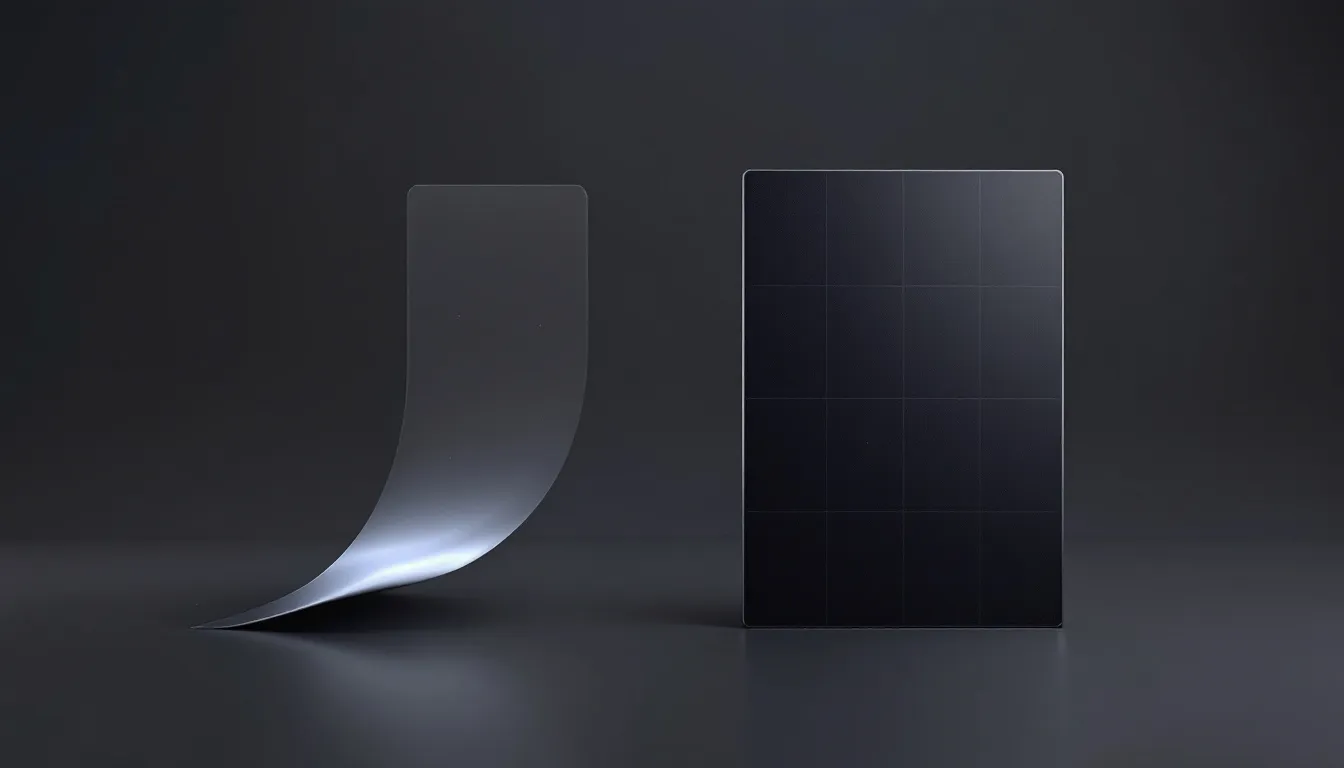
The differences between flexible and traditional solar panels are clear. Flexible panels weigh between 4 to 6 pounds, making them significantly lighter and easier to install and transport—an advantage for RV owners on the move.
Flexible solar panels are often simpler and less expensive to install than traditional panels, usually requiring only adhesive instead of complex mounting hardware. This ease of installation makes them accessible to a broader audience, from DIY enthusiasts to those seeking quick solutions.
However, potential downsides exist. Flexible solar panels may warp in extreme temperatures, leading to water and debris accumulation. Regular maintenance and careful installation can mitigate these issues, ensuring long-term reliability and performance.
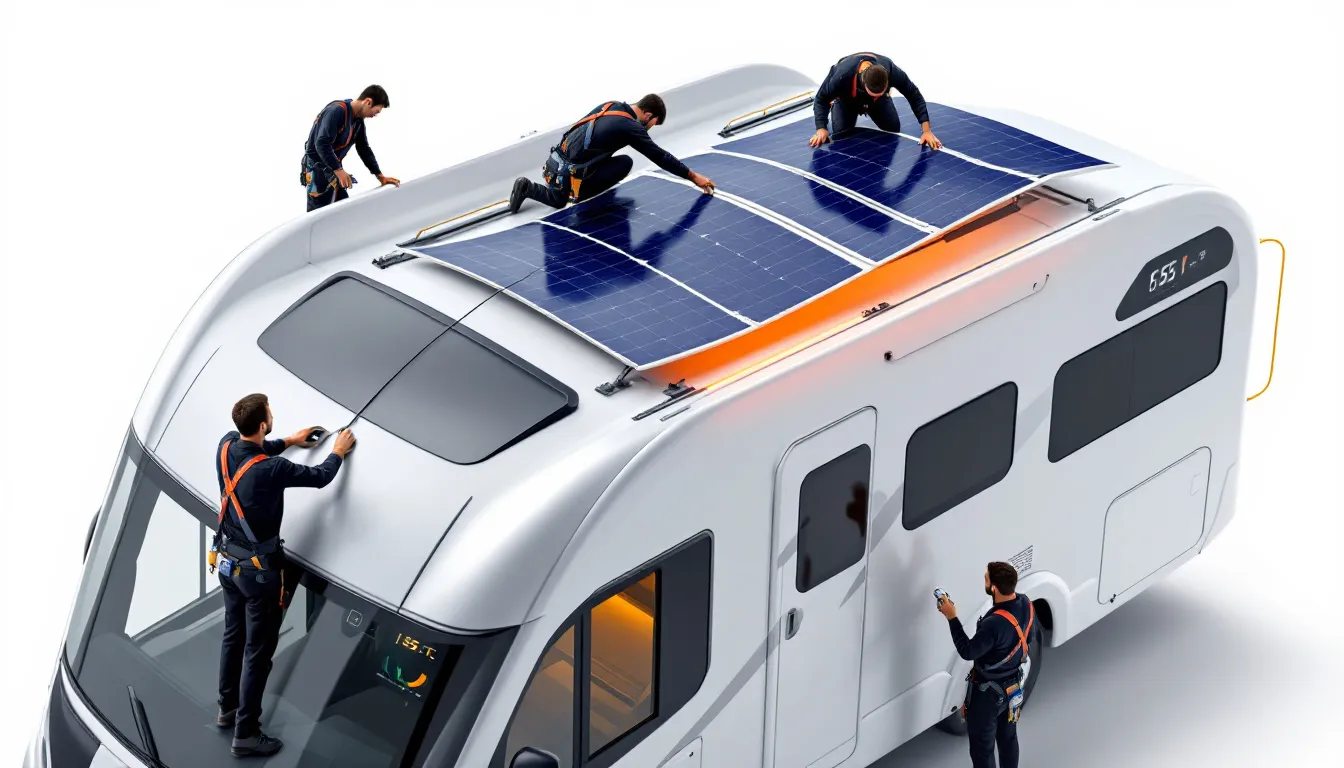
Installing flexible solar panels on your RV is straightforward due to their lightweight nature. Using a high-quality adhesive ensures proper bonding and longevity. Roll-on adhesives or peel-and-stick options provide secure attachment without drilling holes, preserving your RV’s roof integrity.
Positioning the solar panels at an angle rather than flat can significantly enhance efficiency by capturing a number of direct sunlight, especially during peak sunlight hours, providing a better view to learn about the sunlight. Stop. Press.
Adjusting the tilt of your solar panels according to seasonal variations optimizes energy capture. Tilting them 15° more in winter and 15° less in summer based on your latitude maximizes sun exposure. Tilt mount brackets are an effective and cost-efficient solution for adjusting roof-mounted panels.
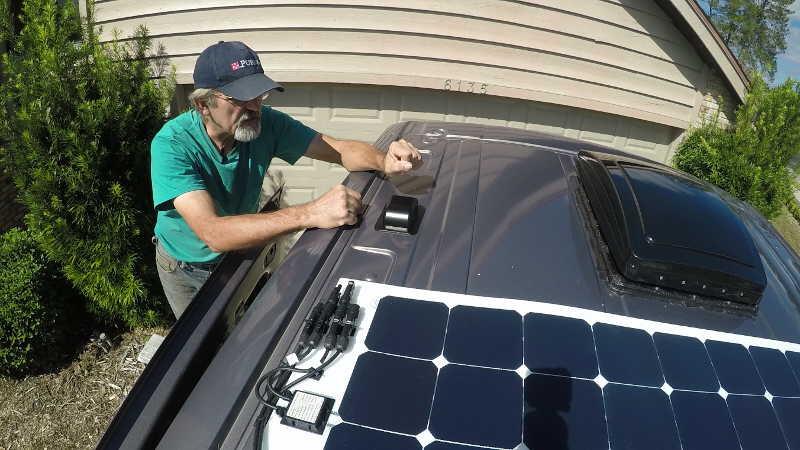
A complete RV solar panel kit includes essential accessories that play a crucial role in overall performance and safety. A charge controller regulates voltage and current from the panels, preventing battery overcharging and ensuring efficient energy use.
Inverters convert the DC power generated by the solar panels into AC power, used by most household appliances. This conversion is essential for running everything from your microwave to your laptop, making your RV as functional as a home, even with a 200 watt system.
Mounting kits secure the solar panels to your RV, ensuring stability and optimal sun exposure. Together, these accessories create a robust and reliable solar power system for your RV adventures.
To maximize your flexible solar panels’ efficiency, create an air gap between the panels and the roof. This improves cooling and prevents overheating, which can negatively affect performance. For roofs in extreme temperatures, use light-colored coatings to reflect heat and protect the panels.
Directly mounting flexible solar panels can decrease output and lifespan due to elevated temperatures. Ensuring proper airflow maintains efficiency and extends the panels’ lifespan. Portable or flexible solar panels allow for easier adjustments to maximize sunlight exposure compared to fixed roof-mounted panels.
Regular cleaning of solar panels is necessary as dust accumulation can reduce efficiency. Cleaning them at least twice a year ensures they remain in top condition. Additionally, using battery temperature sensors paired with inverters enhances charging efficiency, preventing overheating and ensuring optimal performance.
The cost of RV solar panels varies widely, typically ranging from $100 to $800 based on wattage, with 200W panels generally priced from $200 to $500. A complete RV solar system, including all necessary components like panels and inverters, can cost anywhere from $1,000 to $4,000.
Traditional solar panels usually have a higher power output, making them more suitable for powering larger devices compared to flexible panels. Flexible solar panels generally have a lower efficiency rate, converting about 15-18% of sunlight into electricity compared to 20-23% for traditional panels.
Despite their lower efficiency, flexible solar panels are cost-effective for temporary uses, enhancing outdoor activities without the expense of full home systems. Their expected lifespan is 5 to 15 years, shorter than the 25 years typical of traditional solar panels.
We offer cost-effective flexible solar panels from China.
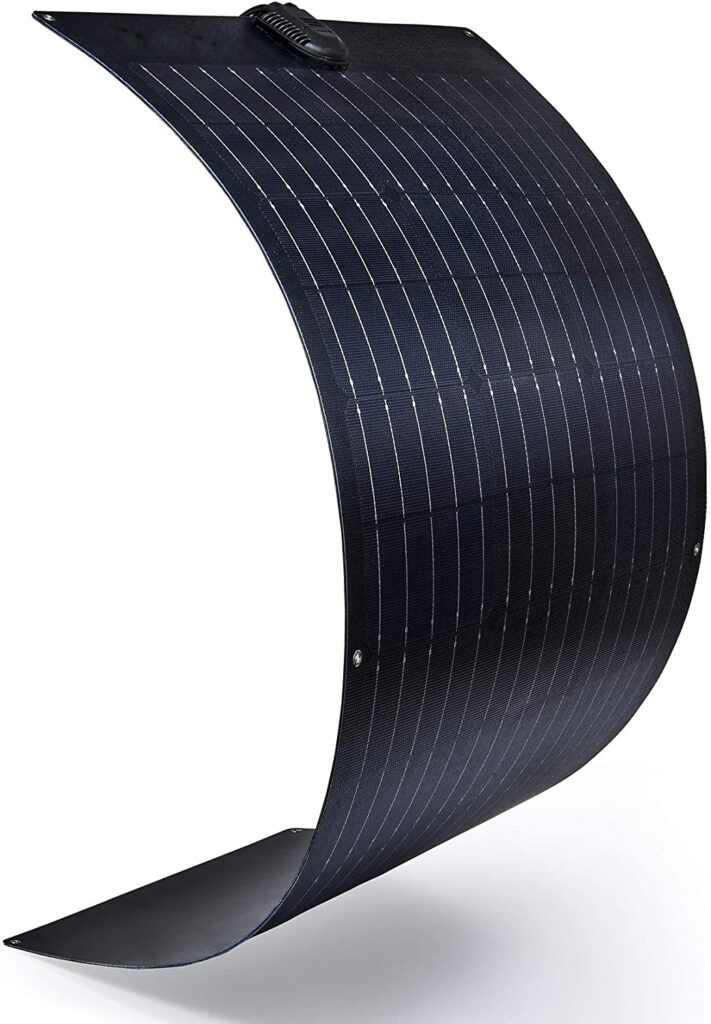
Customers have reported that the thin lightweight design of flexible solar panels made installation easy and user-friendly. Many users mentioned they could install the panels themselves without professional help, emphasizing the ease of installation.
Users note that their flexible solar panels have withstood tough weather conditions, indicating strong durable performance over time. Overall, customer satisfaction ratings have been high, with many praising the best selling item product consistent power output of the panels.
Clients have expressed satisfaction with the performance of their panels, stating that these meet their energy needs effectively while on the road. This feedback highlights the reliability and efficiency of flexible solar panels for RV use, and many clients agree on their effectiveness.
Summarize the key points discussed in the blog post, emphasizing the benefits of choosing flexible solar panels for RVs. Highlight their lightweight design, ease of installation, and adaptability to various surfaces. Mention the importance of CIGS technology and essential accessories for maximizing efficiency.
End with an inspiring note, encouraging readers to consider flexible solar panels for their RV adventures.
Flexible solar panels offer significant benefits for RVs due to their lightweight design, ease of installation, and ability to adapt to various surfaces. This makes them an excellent choice for maximizing solar energy efficiency while traveling.
CIGS solar panels operate using thin-film technology, known for their high efficiency and durability across diverse environmental conditions. This allows them to effectively harness solar energy, contributing to renewable energy solutions.
Flexible solar panels are lighter and easier to install, making them more versatile, but they typically offer lower efficiency and a shorter lifespan compared to traditional solar panels.
Essential accessories for an RV solar panel kit include charge controllers, inverters, and mounting kits, as they significantly enhance performance and safety.
To maximize the efficiency of your flexible solar panels, ensure proper airflow, adjust the tilt according to seasonal variations, and regularly clean the panels. These practices will help you achieve optimal performance.